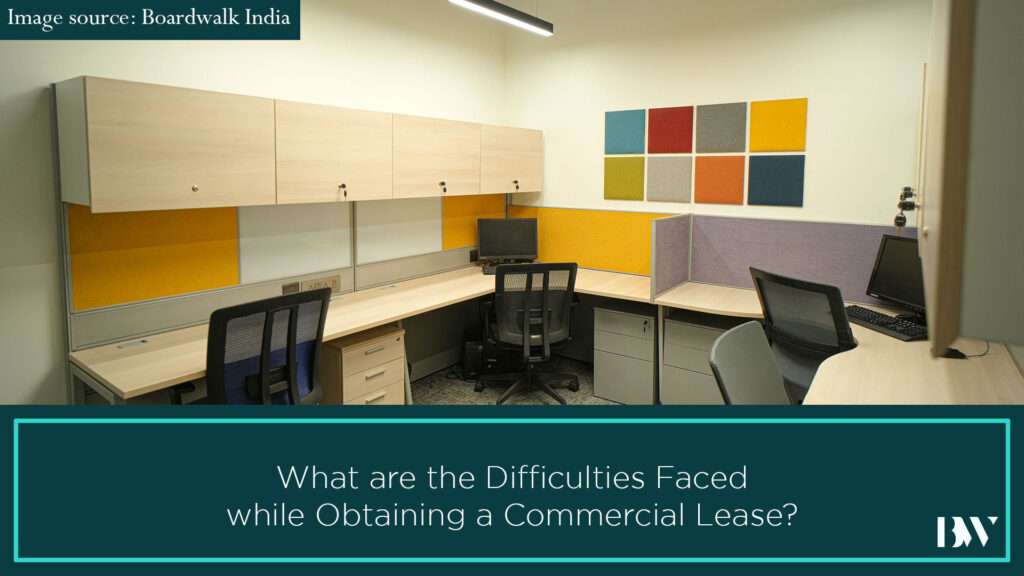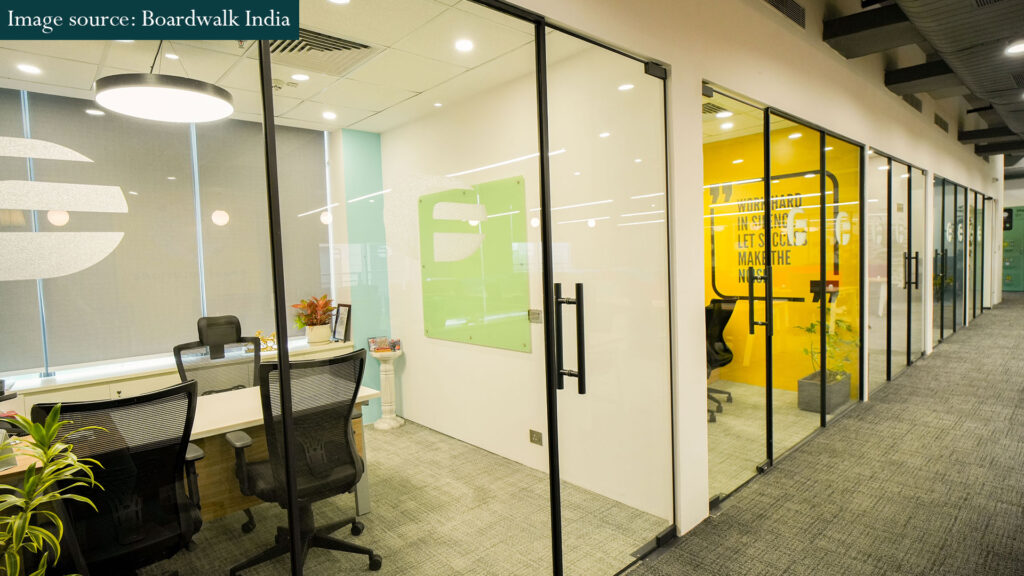What Are The Difficulties Faced While Obtaining A Commercial Lease?

India’s commercial real estate market has expanded rapidly, especially in the wake of the epidemic. Covid-19 had an effect on the real estate business just as it did on any other. But the industry recovered gradually. As a result, a large number of commercial lease properties are now being leased.
Table of Contents:
- What is a Commercial Lease?
- Here is a list of 6 areas where we need to pay attention while obtaining commercial lease

What is a Commercial Lease?
A business lease is a written agreement between two parties whereby one (the landlord) grants the other (the tenant) the only right to occupy the land, building, or office space for a predetermined amount of time (the term) in exchange for rent or a premium.
Inappropriate handling of the lease will lead to years of disputes, legal actions, and exorbitant costs. From the landlord’s perspective, improper drafting of the lease can result in many problems.
For this reason, you should use caution while renting a commercial lease space. When negotiating a commercial lease, you should be mindful of the following areas:
Space:
It’s critical to ascertain the amount of space included in the rental before accepting a commercial lease property for lease. It’s also critical to make clear if the square footage used to calculate your rental expense was available or rental square footage. It is typically smaller than the rental square footage since common features like restrooms, corridors, elevators, and lobby spaces are not included in the usable square footage.
Lease:
A business lease’s “term” refers to the duration of the agreement. It establishes the start and end dates of the lease as well as whether or not there are options for renewal. Landlords are typically more accommodating when it comes to lengthier lease terms, but it’s important to consider the needs of the business because a longer lease typically implies less room for flexibility when the business expands.
Termination:
If you’re renting out a commercial lease space, you should be aware of the steps involved in cancelling a commercial lease early and the requirements for doing so before the lease’s automatic renewal occurs. If the lease does not specify a right of cancellation, you might think about obtaining a right of termination early in exchange for paying the landlord a set amount of liquidated damages in order to avoid being bound by the terms of the agreement.
Security:
Make sure it’s clear what can and cannot be deducted from the security deposit when you take a commercial lease property on lease. Even though certain practices involving security deposits are prohibited by law, you must make sure that the terms and conditions for their recovery are spelled out in the commercial lease.
Here is a list of 6 areas where we need to pay attention while obtaining commercial lease:
1. Space
Determining the precise amount of space that is included in the rental is important. Discuss how to use the common spaces such as the elevators, permitted exits, and corridors and restrooms. It’s also critical to make clear if the square footage used to determine your rental expense was available or rental square footage. Usable square footage is sometimes smaller than rentable square footage since common features like restrooms, hallways, lobbies, and elevators are not included in it. You will be able to determine whether the rental amount quoted is reasonable and, if needed, haggle if you have a solid grasp of the space that is being rented. Additionally, it provides a precise explanation of what uses are allowed from the start.
2. Lease
A lease’s “term” is the length of time that it is in effect. It details the beginning and ending dates of the agreement as well as any opportunities for specific renewals. Generally speaking, landlords are more accommodating when discussing lengthier lease periods, especially when it comes to rent. But it’s crucial to consider the needs of the business; a longer lease means less room for adaptation as the business grows. In addition, signing a long-term lease up front may result in the firm paying more than market rent for the leased space if the rate of rent declines. Sometimes it’s preferable to commit to a shorter period, like a one-year contract, with multiple renewal possibilities.
3. Rent
Of course, rent is a key aspect for any lessee, and it often determines whether or not to rent a place. It is rare for a commercial lease to have a set rent for the whole term, therefore be sure to carefully read the clause about rent increases or escalations. Make sure you know how and when any escalations will be computed if a lease prohibits increases of a specific financial amount. One common technique for figuring these increases is the Consumer Price Index (CPI), which varies depending on the state of the market. It might be able to negotiate a cap on the level of CPI-based escalations if the landlord insists on them, so that at the very least, the maximum conceivable rent to be paid is known.
4. Dispute Resolution
Regarding the resolution of disputes, pay close attention to the contract’s provisions. Litigation expenses can quickly get out of hand, especially for small businesses with tight budgets. Formal court cases can be resolved through mediation or arbitration, and clauses pertaining to these processes are frequently found in leases and business agreements. In order to address disagreements between the two parties, mediation involves the participation of an impartial third person who acts as a facilitator rather than a decision-maker. Similar to mediation, arbitration calls for the involvement of an impartial third party; however, unlike mediation, the judgement rendered by the arbitrator on the dispute will either be binding or non-binding on the parties.
5. Legal Compliance
Numerous federal, state, and local laws and regulations apply to commercial lease locations. Although it’s usually the landlord’s responsibility to make sure the entire property complies with the law, it’s important to take the expectations for each particular rented area into account. If there are any ambiguities in the lease regarding who is in charge of making sure the room conforms with applicable laws, ask the landlord to clarify the terms.
6. Repairing
Pay attention to any clauses in the contract that stipulate that the premises must be returned to their initial condition upon the expiration of the lease. Rather, discuss with the landlord what constitutes normal wear and tear, damage that was not your fault or beyond your control, and any modifications that the landlord has already permitted. Additionally, take note of who is responsible for heating, ventilation, and plumbing repairs and maintenance.
Conclusion
All things considered, here are some of the things you should consider before leasing a commercial lease space.
Visit Boardwalk India at www.boardwalkindia.com to learn more about commercial leasing from a variety of Indian industries.
